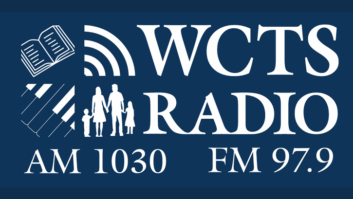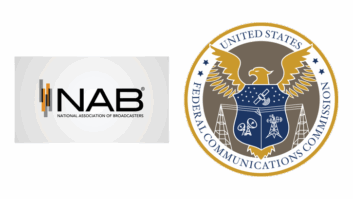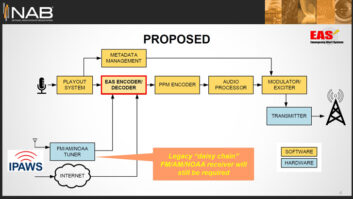 GeoBroadcast Solutions has a gripe today.
GeoBroadcast Solutions has a gripe today.
GBS is the company that wants the Federal Communications Commission to approve a special synchronized use of FM boosters to allow stations to offer geo-targeted content.
But as we’ve reported, a separate alliance of two dozen radio groups has said that if the commission approves of that idea, it also should let FM translators offer original content.
[Read: Should Translators Originate Content? FCC Is Taking Comments]
Now GBS wants to make clear that the two proposals are entirely separate.
“GeoBroadcast Solutions takes issue with the efforts by Broadcasters for Limited Program Origination to connect its own request with the FCC by attempting to join the petition we filed on March 13 for a simple rule change,” the company stated in an email.
“Our filing relates solely to FM boosters, and proposes no changes whatsoever to the FCC’s rules regarding translators. Our proposal thus reflects technological advancements in the same way that the 2017 FCC decision that allowed television broadcasters to use the Next Generation TV standard (aka ATSC 3.0), reflecting technological advancements. Our proposed minor rule change would add just two clauses in the rules (§74.1231) and does not call for any other change.”
GBS pointed out that its idea is to allow geo-targeted programming “during a fraction of the broadcast hour.” It says its technology has undergone “multiple field and lab tests” and been in development since 2011.
“Furthermore, our proposed rule change would capitalize on the original purpose of FM boosters and its ability to use the same frequency for spectrum efficiency,” GBS continued. “Proposals to use non-fill-in translators to transmit a week’s worth of key programming would skew this proceeding in an entirely different direction. It is so fundamentally different than what we proposed that it warrants an entirely different discussion, since it proposes a fundamental rewrite of rules on certain translators and is not driven by technology innovation.”
It said it supports innovation but that “each offering must stand on its own for its merit and market potential, and not create the misrepresentation that they should be connected in some way.”







